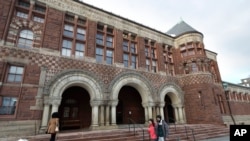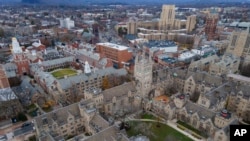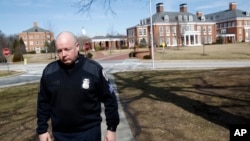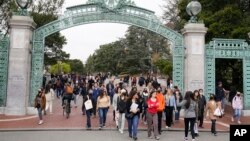Student Union
Harvard Sees Steep Decline in Revenue

Harvard University lost $10 million in operating expenses at the end of the fiscal year in September, compared with a $308 million surplus last year.
Revenue declined $138 million, mostly in the final quarter of the fiscal year that ended the last day of June 2020, according to the University’s Annual Financial Report.
Refunds costly
The biggest toll was from refunding student room and board fees — $32 million — when students were sent home because of the COVID-19 pandemic.
Total student revenue decreased by 11% to $1.1 billion.
Harvard also lost revenue from its lucrative executive education programs in which the university earned $500 million in revenue, or 9% of its profit. Executive programs include short- and long-term leadership and business programs in the school’s vaunted business school.
“The loss would have been far greater without the implementation of immediate cost control efforts, including cuts in discretionary spending, a freeze in new hires and raises, no bonuses or overtime work, voluntary salary cuts by senior leadership, and reduced capital spending,” Vice President for Finance Thomas J. Hollister and Treasurer Paul J. Finnegan wrote in the report.
Salary and hiring freeze
In April, the university in Cambridge, Massachusetts, instituted a salary and hiring freeze and other belt-tightening measures in the wake of economic disruption caused by the COVID-19 pandemic.
It canceled or deferred discretionary spending, according to an email sent to the school community on April 13.
“Harvard, like other universities around the world, will not be spared the economic consequences of the pandemic,” said an email signed by President Lawrence S. Bacow, Executive Vice President Katherine N. Lapp and Provost Alan M. Garber.
The April email called the financial effects of COVID-19 “disorienting, even dizzying.”
Financial aid increased
On a bright note, the financial report stated that the university increased its financial aid to students by 5% to $645 million in scholarships.
Also, while gifts and donations, which account for 46% of its endowment, were down 13%, assets were up.
Harvard Management Company increased assets by $893 million to $50.2 billion as of June 30, 2020.
See all News Updates of the Day
Proposed settlement offered over financial aid allegations

A group of U.S. colleges and universities have agreed to settle a lawsuit alleging deceptive financial aid tactics, according to a report published in The Hill.
The schools would pay $284 million to plaintiffs who were enrolled full-time and received financial aid between 2003 and 2024.
The schools have denied the allegations. (April 2024)
Universities in Middle East building research relationships with China

As China bolsters research relationships with universities in the Middle East, the United States has taken notice – especially when that research involves artificial intelligence.
Reporting for University World News, Yojana Sharma has the story. (March 2024)
Tips for staying safe while studying in the US

Recent news events have raised safety concerns among some international students studying in the United States.
Adarsh Khandelwal, writing in the India Times, has tips for staying safe from the moment you arrive until the day you complete your studies. (March 2024)
Some colleges are making digital literacy classes mandatory

A 2019 study by Stanford found that most college students can’t tell the difference between real and fake news articles. Amid rampant online disinformation, and the threat of AI-generated images, some schools are making students learn “digital literacy” to graduate.
Lauren Coffeey reports for Inside Higher Ed. (March 2024)
With federal student aid delays, students aren’t sure what college will cost

The U.S. Department of Education’s federal student aid form (FAFSA) experienced serious glitches and delays this year.
Now, many students have been admitted to college, but don’t know how much money they’ll need to attend.
Read the story from Susan Svrluga and Danielle Douglas-Gabriel for The Washington Post. (March 2024)






